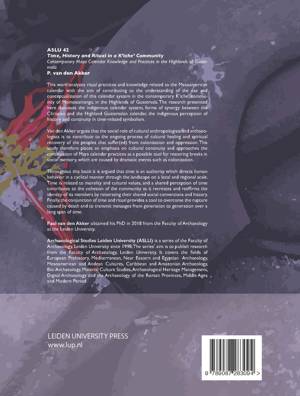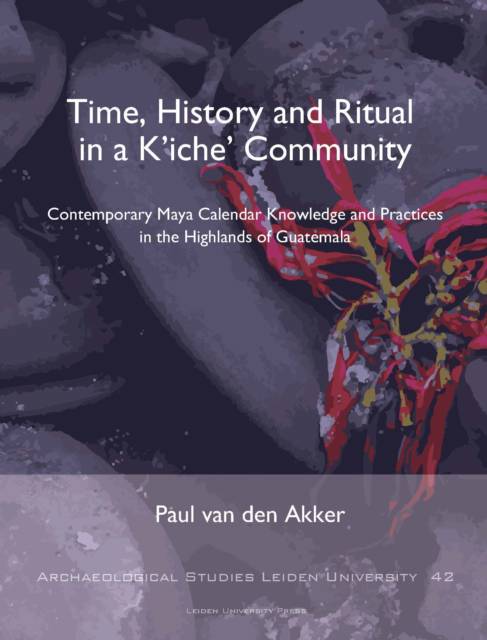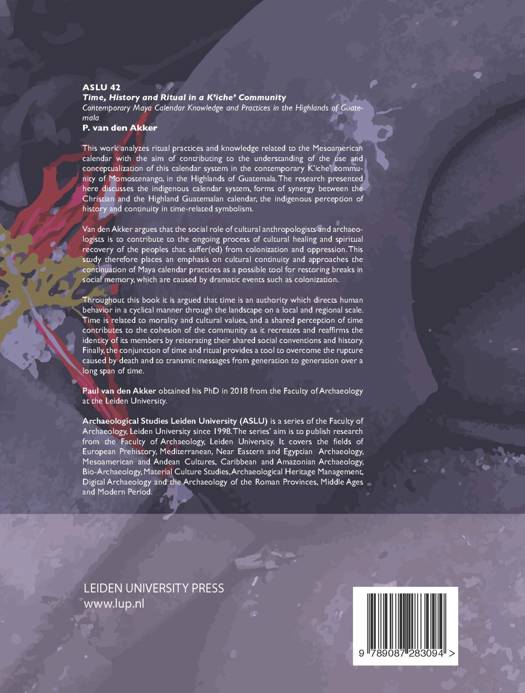
- Afhalen na 1 uur in een winkel met voorraad
- Gratis thuislevering in België vanaf € 30
- Ruim aanbod met 7 miljoen producten
- Afhalen na 1 uur in een winkel met voorraad
- Gratis thuislevering in België vanaf € 30
- Ruim aanbod met 7 miljoen producten
Zoeken


Time, History and Ritual in a K'Iche' Community
Contemporary Maya Calendar Knowledge and Practices in the Highlands of Guatemala
Paul Van Den Akker
€ 55,00
+ 110 punten
Omschrijving
This work analyses ritual practices and knowledge related to the Mesoamerican calendar with the aim of contributing to the understanding of the use and conceptualization of this calendar system in the contemporary K'iche' community of Momostenango, in the Highlands of Guatemala. The research presented here discusses the indigenous calendar system, forms of synergy between the Christian and the Highland Guatemalan calendar, the indigenous perception of history and continuity in time-related symbolism. Van den Akker argues that the social role of cultural anthropologists and archaeologists is to contribute to the ongoing process of cultural healing and spiritual recovery of the peoples that suffer(ed) from colonization and oppression. This study therefore places an emphasis on cultural continuity and approaches the continuation of Maya calendar practices as a possible tool for restoring breaks in social memory, which are caused by dramatic events such as colonization. Throughout this book it is argued that time is an authority which directs human behaviour in a cyclical manner through the landscape on a local and regional scale. Time is related to morality and cultural values, and a shared perception of time contributes to the cohesion of the community as it recreates and reaffirms the identity of its members by reiterating their shared social conventions and history. Finally, the conjunction of time and ritual provides a tool to overcome the rupture caused by death and to transmit messages from generation to generation over a long span of time.
Specificaties
Betrokkenen
- Auteur(s):
- Uitgeverij:
Inhoud
- Aantal bladzijden:
- 262
- Taal:
- Engels
- Reeks:
- Geïllustreerd:
- Ja
Eigenschappen
- Productcode (EAN):
- 9789087283094
- Verschijningsdatum:
- 1/05/2018
- Uitvoering:
- Paperback
- Formaat:
- Trade paperback (VS)
- Afmetingen:
- 208 mm x 272 mm
- Gewicht:
- 839 g

Alleen bij Standaard Boekhandel
+ 110 punten op je klantenkaart van Standaard Boekhandel
Beoordelingen
We publiceren alleen reviews die voldoen aan de voorwaarden voor reviews. Bekijk onze voorwaarden voor reviews.












